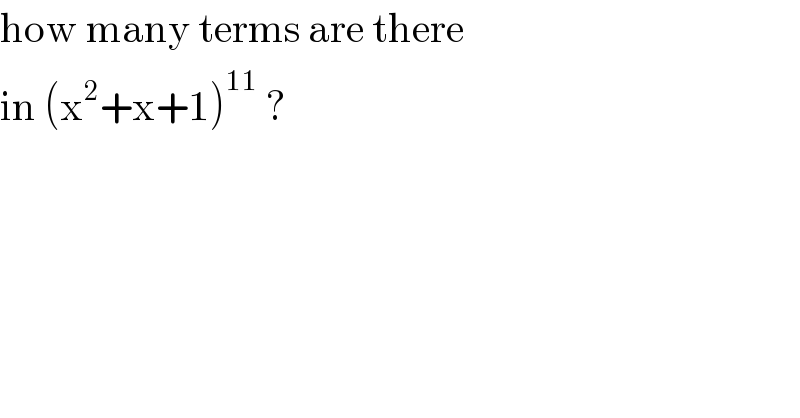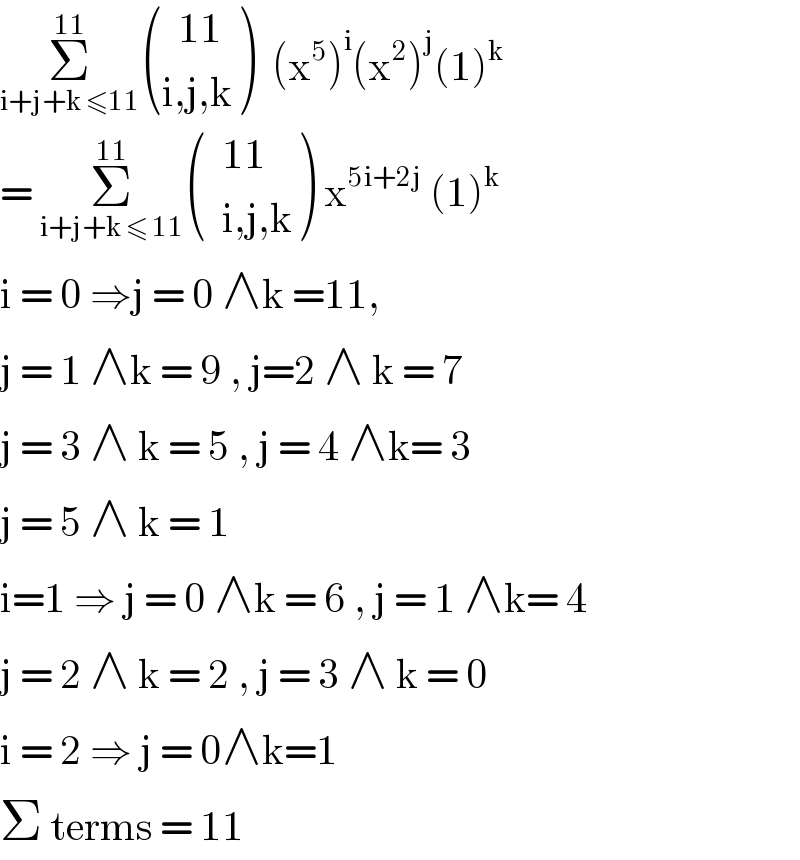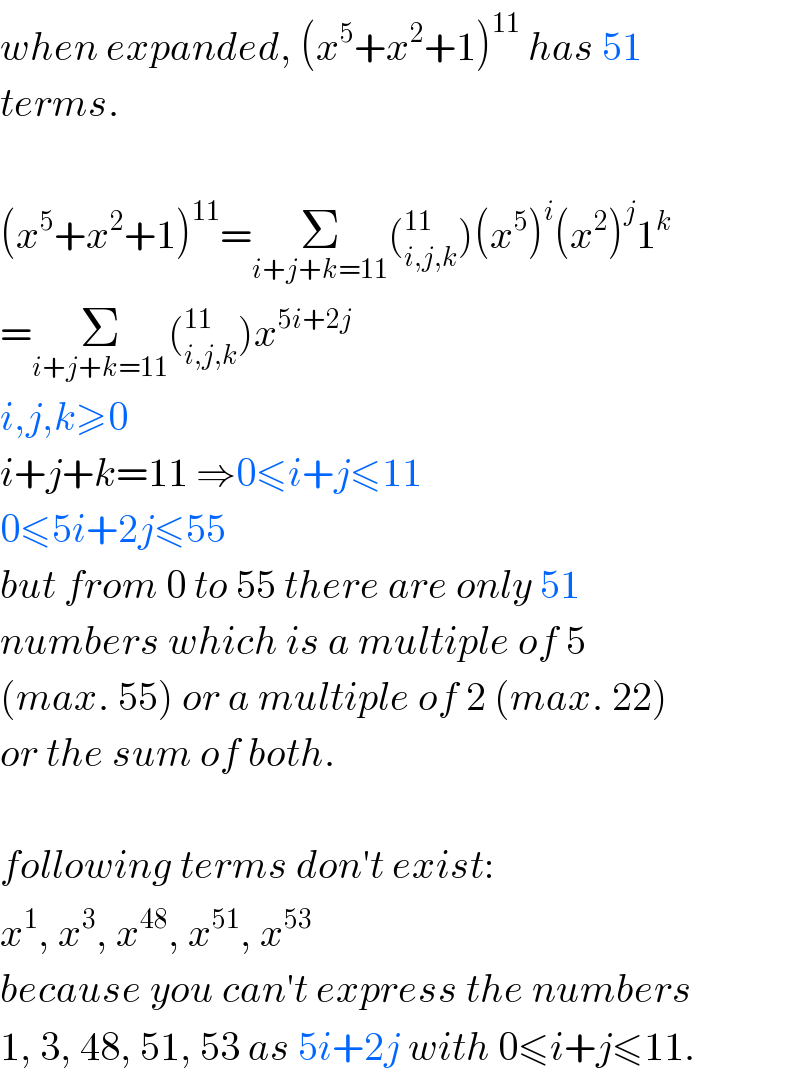
Question and Answers Forum
Previous in Permutation and Combination Next in Permutation and Combination
Question Number 87933 by john santu last updated on 07/Apr/20

Commented by mr W last updated on 07/Apr/20

Commented by mr W last updated on 07/Apr/20

Commented by john santu last updated on 07/Apr/20

Commented by john santu last updated on 07/Apr/20

Commented by mr W last updated on 07/Apr/20

Commented by jagoll last updated on 07/Apr/20

Commented by jagoll last updated on 07/Apr/20

Commented by ajfour last updated on 07/Apr/20

Commented by jagoll last updated on 08/Apr/20

Commented by mr W last updated on 08/Apr/20

